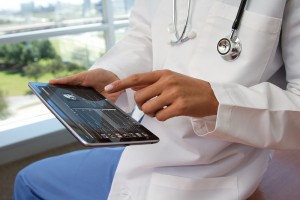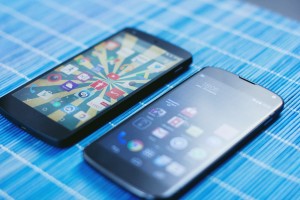
by Marc Edwards, B.Sc., PMP, MBA
In my prior post I talked about some of the opportunities available for an Uber-ization of healthcare. However, there are many obstacles as well that should be considered. Some of these are quite obvious and others not so much. Quickly, here are a few:
1. Electronic health records (EHRs)
What role would an EHR play in an Uber-ized environment and how will this new Uber-like software interact with the EHR? Will there be much data sharing? If not, this would be a missed opportunity of significant proportions as the amount of data collected will be colossal and could be used to help treat the patient more effectively. Making this information available through an EHR would help facilitate the logistics between this new software, hospitals, and other health providing clinics.
2. The matter of health insurance
What would be the role of health insurers in this new environment? I imagine that they would not find this new scenario ideal. Logically, this new Uber-ization of healthcare should lower the cost of healthcare overall by increasing the availability and access to healthcare, making health insurance less vital to the average American. Of course, for those of us who live in countries with subsidized healthcare, this is not an issue.
3. Qualifications
How will the owners of this new software ensure that the health consultants providing medical advice are indeed qualified to do so? As I mentioned in previous posts, it will be a major hurdle to assure the public that this new platform will not be inhibited by quacks and frauds. And how will the software owners confirm that the credentials of the health consultants are accurate? Logistically, this would be a difficult feat indeed.
4. Prescriptions
What about prescriptions? How does one get a prescription filled for medicine that they desperately need in this new environment? Do we now have to consider electronic prescriptions? The opportunity for misuse would be great in this instance. In addition, the health provider must take into account the patient’s medical history and the prescriptions that they have taken in the past and what they are taking right now, information that could be available in an EHR (see point #1).
5. Physical diagnoses
And how will physical diagnoses work? Would it be enough just to take a photo of an aliment and send it to the provider? What about those problems that can be diagnosed, in part, by touch? How would that work in an Uber-ized environment?
6. Privacy & Information Governance
With an Uber-ized healthcare, we will need to address the privacy question. How will our health information do you protected? Do any of the devices used to access this software need to be encrypted? And how will the companies that make these devices manage this? Would the companies by responsible for this or would the consumers of these devices be responsible? Where will the health information be stored? Will the companies housing such information have the appropriate safeguards in place? What will happen in the instance of a privacy breach and who would be responsible? How will the information be protected? Giving the value of health information to the user and a potential hacker, privacy and information governance may prove to be the most important aspect of them all.
Conclusions
While all of these questions may seems daunting, it’s important to realize that technology changes usually come first with the legislation and behavioral changes coming afterwards. Therefore, although an Uber-ized healthcare seems far-fetched and to some, a crazy idea, one shouldn’t be surprised if such a platform is developed within the next few years. The challenge for all of us will be to deal with such a phenomenon when it does occur taking all of the above into consideration. What else should we consider in the event of a new Uber-ized healthcare?




